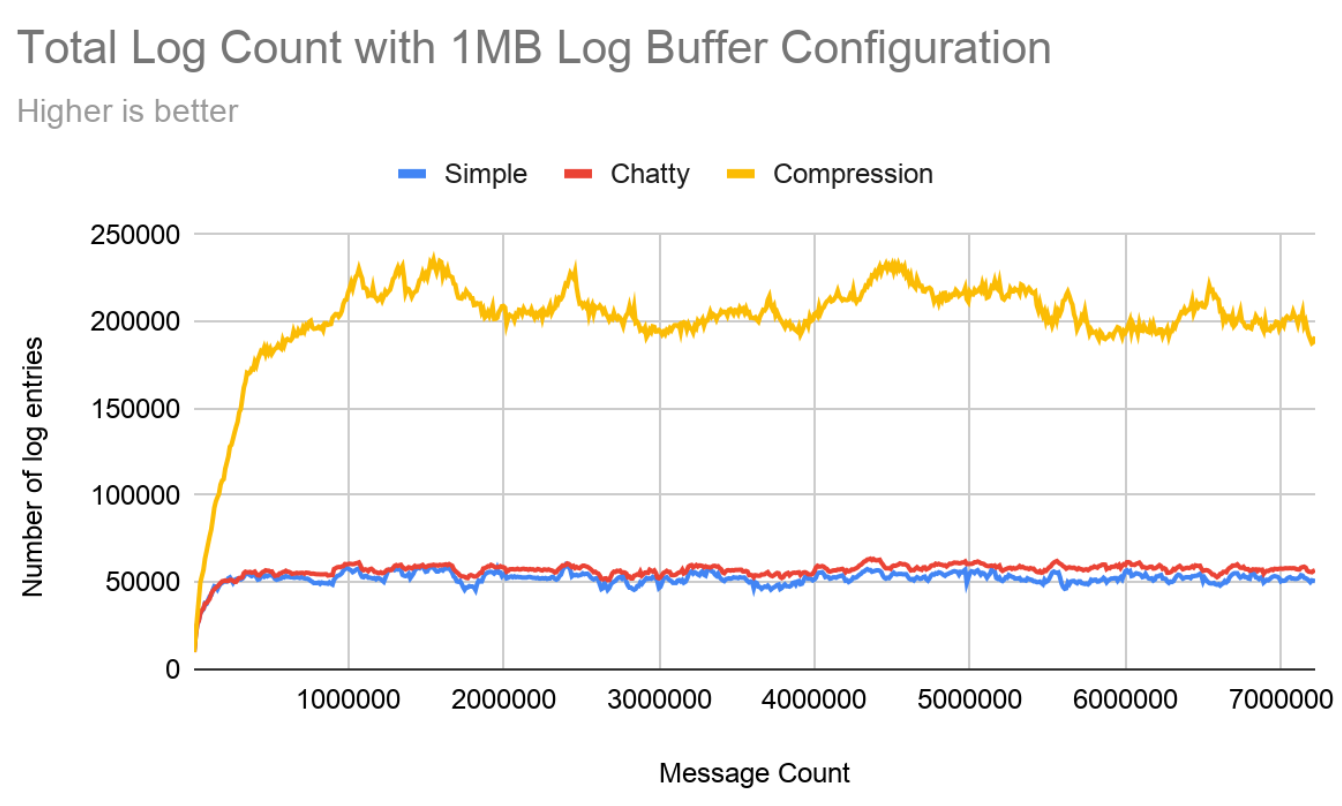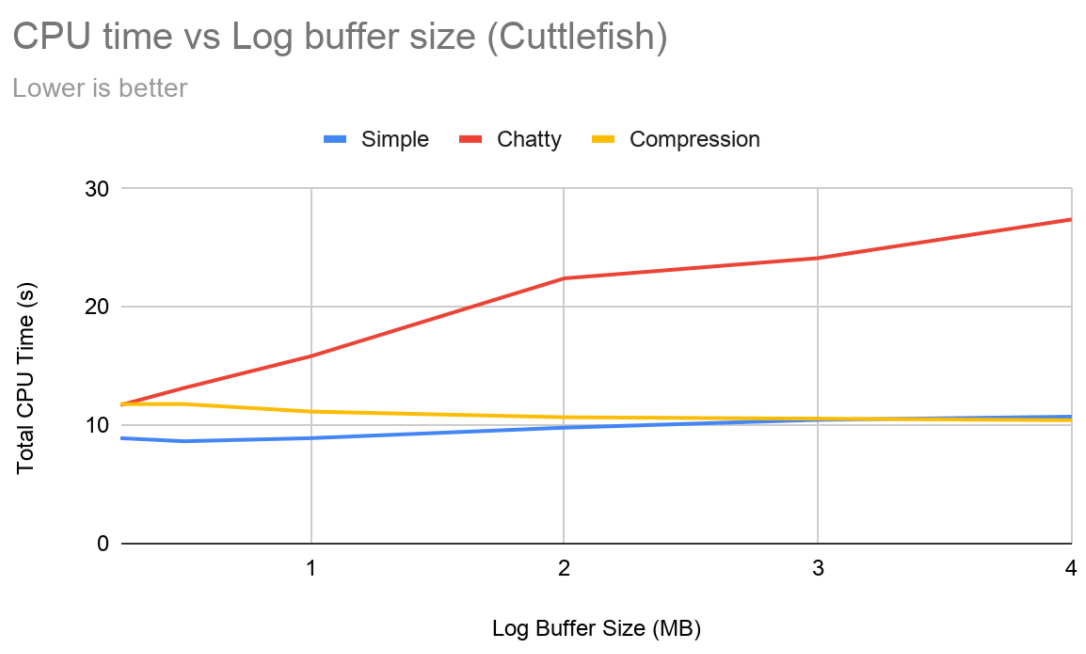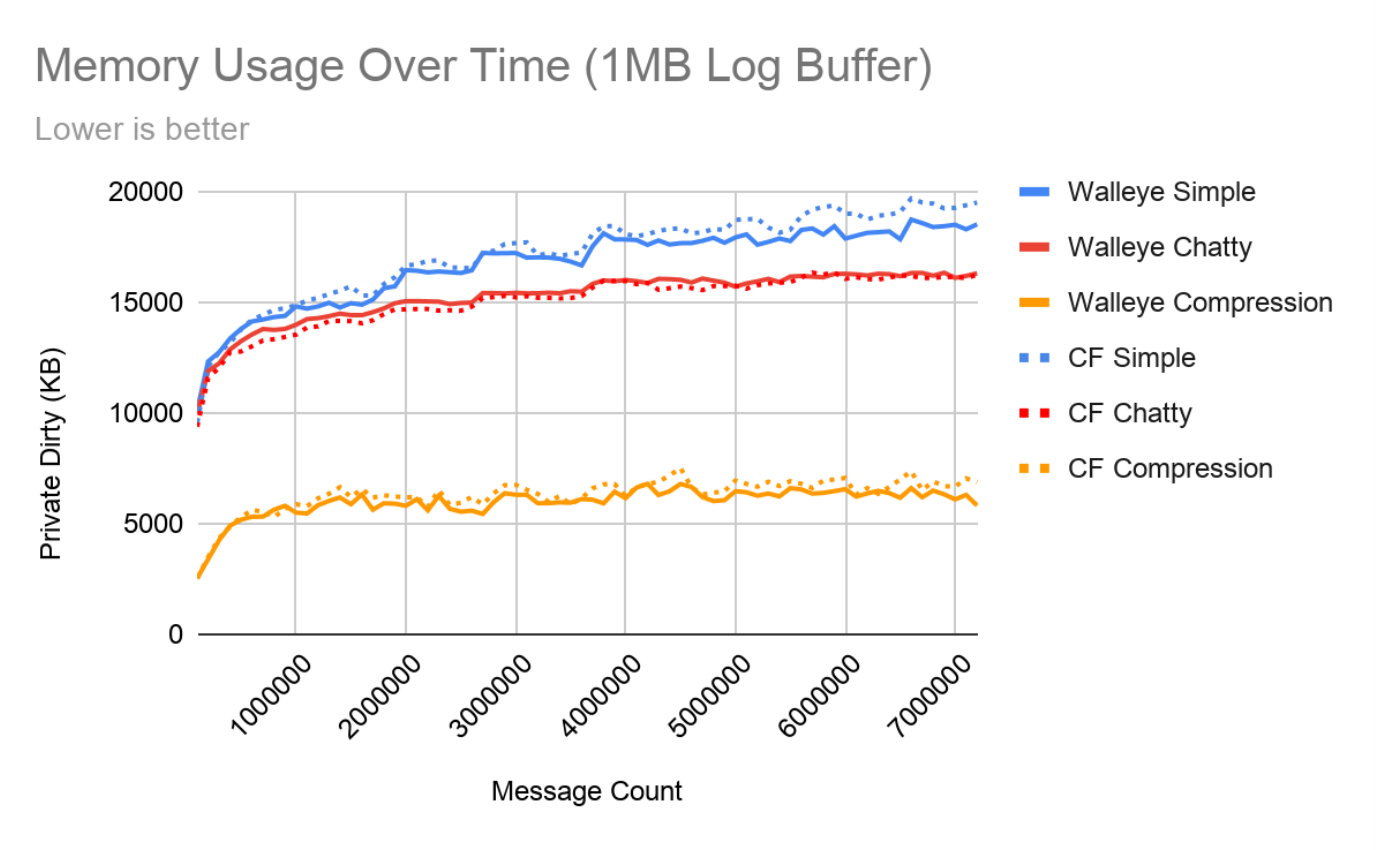3.0 KiB
3.0 KiB
Log Compression instead of Chatty in Android S
The problem
- Log buffer space is precious, but suffers from the tragedy of the commons
- Log spam fills the buffers making them less useful in logcat/bugreports
- “Spam” is often in the eye of the beholder: which messages are important depends on what you’re trying to debug
The idea
- Chatty isn’t helping as much as we’d hoped, and is surprisingly expensive
- Compress logs to make more efficient use of the buffer
- Address the root cause of log spam at its source:
- Do not hide log spam at runtime, which de-incentivize fixes
- Add presubmit coverage similar to SELinux violations to keep log spam down
Chatty in Theory
- Delete messages classified as spam to extend the range of logs from other sources
- “Spam” defined as:
- Logs from UIDs whose logs consume over 12.5% of a log buffer
- Back-to-back exact duplicate messages
Chatty in Practice
- Developer confusion about missing and de-duplicated logs
- Lowered incentive to fix the root cause of bad logging behavior
- High CPU overhead
- Memory usage greatly exceeds configured buffer size
- Only marginal increase in log range
Log Compression in Theory
- Store many more logs in the same log buffer size => better for diagnosis
- Memory usage stays below configured log size => better system health
- No gaps in logs, no de-duplicated logs => no developer confusion
- No hiding bad behavior => increased accountability/incentive to fix root causes
Log Compression Preliminary Results
- Captured 2, 5 day periods of full time personal usage of Pixel 4 and replayed the logs offline
- Compression vs Chatty:
- 3.5x more log messages on average
- 50% less CPU usage
- 50% less memory usage
Log Messages in 1MB
- The number of log messages still available in logcat after ‘Message Count’ messages have been logged to a 1MB log buffer
- Note: ‘Simple’ is the Chatty code without log spam detection and without de-duplication.
CPU Time
- Total CPU time on ARM64 (Walleye) and 32bit x86 (Cuttlefish)
- X axis represents different log buffer size configurations.
- Chatty uses significantly more CPU time at 1MB (the default Pixel configuration)
- Chatty scales poorly with increased log buffer sizes
- Note: “simple” isn’t “compression without actually compressing”, it’s “chatty without doing the chatty elimination”, which is why “simple” is more expensive than “compression” on walleye.
Memory Usage
- The memory used by ‘Message Count’ messages, on both Walleye and Cuttlefish
- Note: Chatty does not consider the metadata (UID, PID, timestamp, etc) in its calculation of log buffer size, so a 1MB log buffer will consume more than 1MB. Note that there are 8 log buffers, 5 of which are typically filled.



